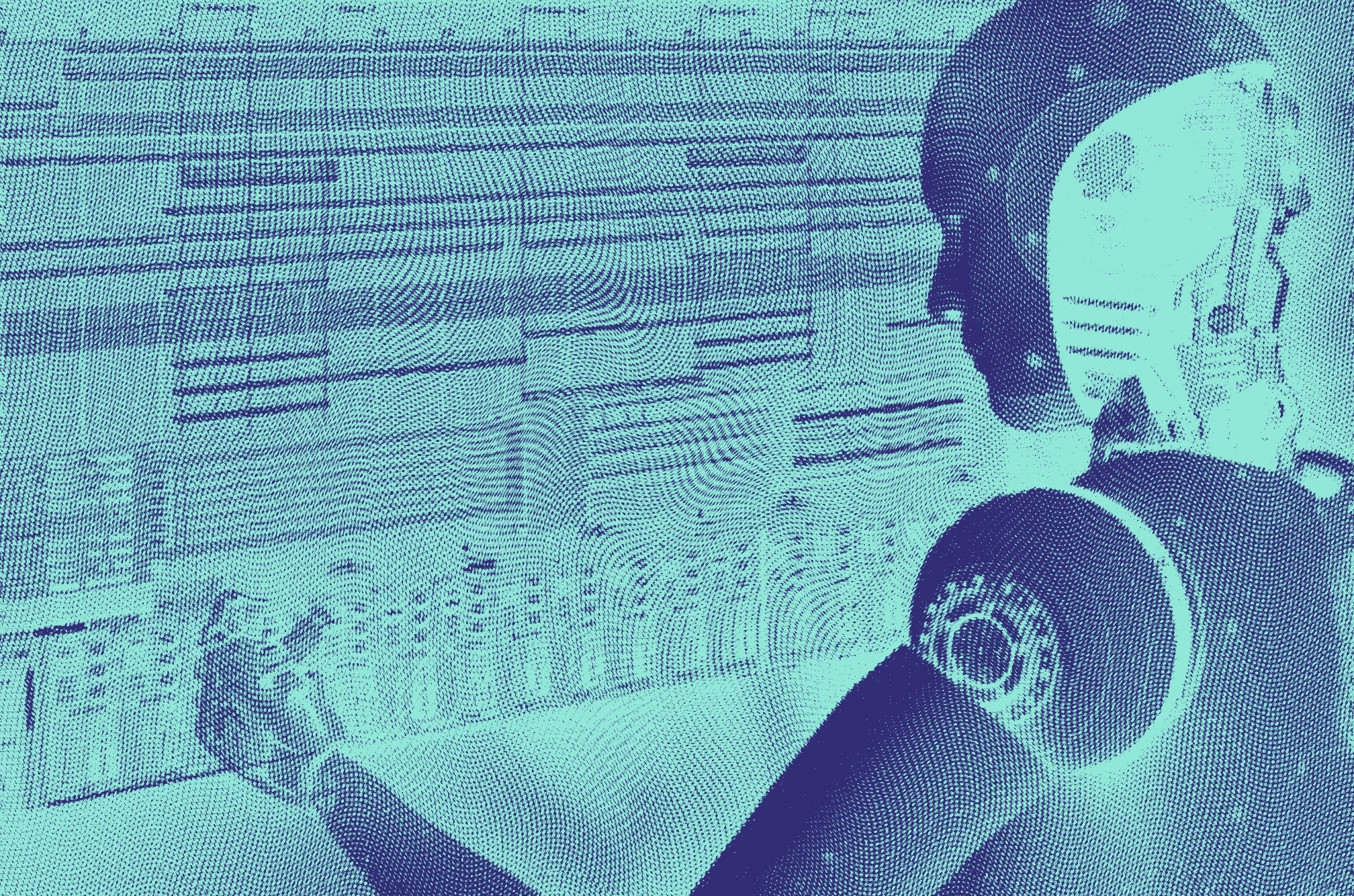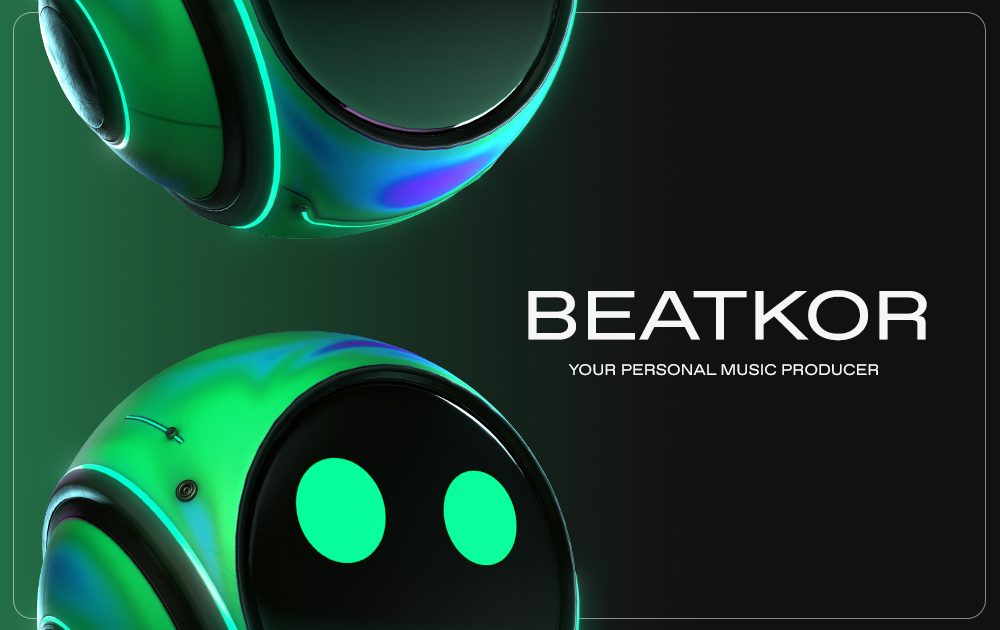 Features
Features
“You can’t commoditise brilliance”: are we truly ready for the AI revolution in music?
Jitwam speaks with Toby Doman on how he plans to survive and thrive in the AI uprising using KORUS
Charles Darwin’s ‘Origin of The Species’ was a groundbreaking book that offered a detailed discussion on the evolution of humans; "It is not the strongest of the species that survives but the most adaptable.”
Over 150 years after it was first published, humankind has arrived at an unprecedented technological junction that will without doubt test our adaptability. It could also open untold depths of creativity and opportunity. If this all sounds a little bit like the opening monologue to a science fiction movie, think again. Artificial Intelligence (AI) is already having a profound impact on all of our lives – whether you realise it or not – and the music industry is no exception.
The glue that binds musical notes and composition is mathematics, which makes music just about perfect for AI disruption. AI has already been taught the basics of rhythm, time structures, melody and more recently, voice cloning. It’s also sparked a huge debate about who the building blocks of music belong to. Humans…or the robots?
For music fans not satisfied just with AI-curated playlists, things are getting even more interesting. Artists like Jitwam are now lending their creativity to platforms such as the deadmau5 and Richie Hawtin-backed PIXELYNX.
“It’s really a new way for artists to connect in more tangible ways with fans and opening new avenues of creativity.” - Jitwam
The company recently unveiled a new tie-up with the online music maestros over at Beatport. The new product offers fans a gamified way to take the best bits from their favourite artists – think stems and vocals - and use AI and an in-built digital companion to turn out their own personalised remixes or productions.
Called BeatKOR, it plugs into PIXELYNX’s existing KORUS platform and community. For artists, it’s an exciting new departure. “It’s really a new way for artists to connect in more tangible ways with fans and opening new avenues of creativity,” says London-based Jitwam, speaking to Mixmag Asia.
AI is now driving even more personalised and creative approaches to production, in ways unthinkable even a few years ago. According to PIXELYNX founder and CEO Inder Phull, we have approached a historic turning point. “The industry is in one of these periods of reinvention and the opportunity is transformative: to establish new creative touchpoints, forms of engagement and tangible opportunities for music fans and creators of all levels.”
So what is it about KORUS that excites artists and producers? “This is about getting my feet wet in terms of better understanding new technologies that are going to facilitate how fans interact with artists. It’s the future,” says Jitwam. Adding that he sees “AI more broadly as another tool in the arsenal of a producer to deploy in the songwriting and creative processes.”
“We think that KORUS proves that it doesn't have to be all that scary - it could very well remedy issues around intellectual property, distribution, and revenue.” - Inder Phull
It’s clear that the revolution is coming. Back in the 1970s American Jazz Poet, Gil Scott Heron famously warned us that ‘the revolution will not be televised.’ Take a look at his lyrics and it’s obvious he is telling us that you have to be active, not a passive participant in the revolution.
When it comes to AI, Jitwam agrees. “You need to adapt, or die. As artists, we create this content to make our lives better and more enjoyable. We’ve turned into passive consumers of technology. AI could free us to being more active and creative societies.”
That said, the application of AI to the creative process has caused alarm in some quarters. As a new and not-yet universally understood technology, AI could easily become the industry bogeyman. It could stifle creativity, make producers and artists complacent or become over-reliant on shortcuts.
PIXELYNX’s Inder Phull suggests that some of these fears are unfounded. “The introduction of emerging tech like AI often creates a sense of fear in creative communities, but we think that KORUS proves that it doesn't have to be all that scary - it could very well remedy issues around intellectual property, distribution, and revenue.”
“The barriers to entry for electronic music production have been getting lower and lower for decades now, but the quality of the music output has never been higher.” - Robb McDaniels
For Jitwam though, it’s more than just technology. “My thoughts and experiences are my own and I value my art in a way that I’m not threatened by any technology. My job on this earth is to create.”
Now, consider the following, simple equation: AI + Music Industry = Artistic Erosion. How on earth do you protect a mood or a feeling? Two of the main ingredients you need to make great music. Jitwam believes a collective response is in order. “It will need a lot of thought [protecting artists]. We need a collective body to bargain on our behalf but it’s down to us artists to decide how to use this stuff.”
Industry veterans like Robb McDaniels – who is overseeing the BeatKOR rollout as Beatport CEO – sounds a positive note about AI’s likely impact on the broader industry. “The barriers to entry for electronic music production have been getting lower and lower for decades now, but the quality of the music output has never been higher,” he says. “I don't think brilliance can be commoditised.”

Read this next: Why electronic music lessons should be taught in secondary schools
For all the gathering rain clouds around the AI debate, there are also bright rays of sunshine. The adoption of AI has the potential to supercharge the discovery of music, new and old. In combination, TikTok and AI will be powerful drivers of how people find music and share it. This is a trend unlikely to be lost on label executives from the majors right down to the plucky indies.
Some major artists are already getting creative with AI in live settings. David Guetta is one of them. Clips of a recent show revealed him to be road-testing a track using fully cloned Eminem lyrics. Guetta is unapologetic about the use of artificial tools for his trade. "Nothing is going to replace taste. You have a certain type of emotion you want to express, and you're going to use all the modern instruments to do that."
Read this next: 8 of the best AI tools for production
Let’s now return to the theme of humans and robots and take a peek into our collective crystal ball. For all the talk of artistic gloom, AI in the music business stands to deliver some interesting – benign - changes in the coming years. Walk into a hotel lobby today and you’ll probably be listening to a Thievery Corporation playlist. In five years’ time, AI could be soundtracking the same lobby or your local art space in a much more bespoke way. As the mood, lighting or environment changes, so will the music.
This is an exciting, but non-threatening development. The big changes are more likely to be coming in the creative and content production spaces.
A final word from Jitwam on this: “I would like to think as a human species, we are drawn to the human spirit. We can all hang out online but we all still love going to festivals or clubs and interacting with each other. That’s not ever going to change.”
Toby Doman is a Writer for Mixmag Asia, follow him on Instagram.


